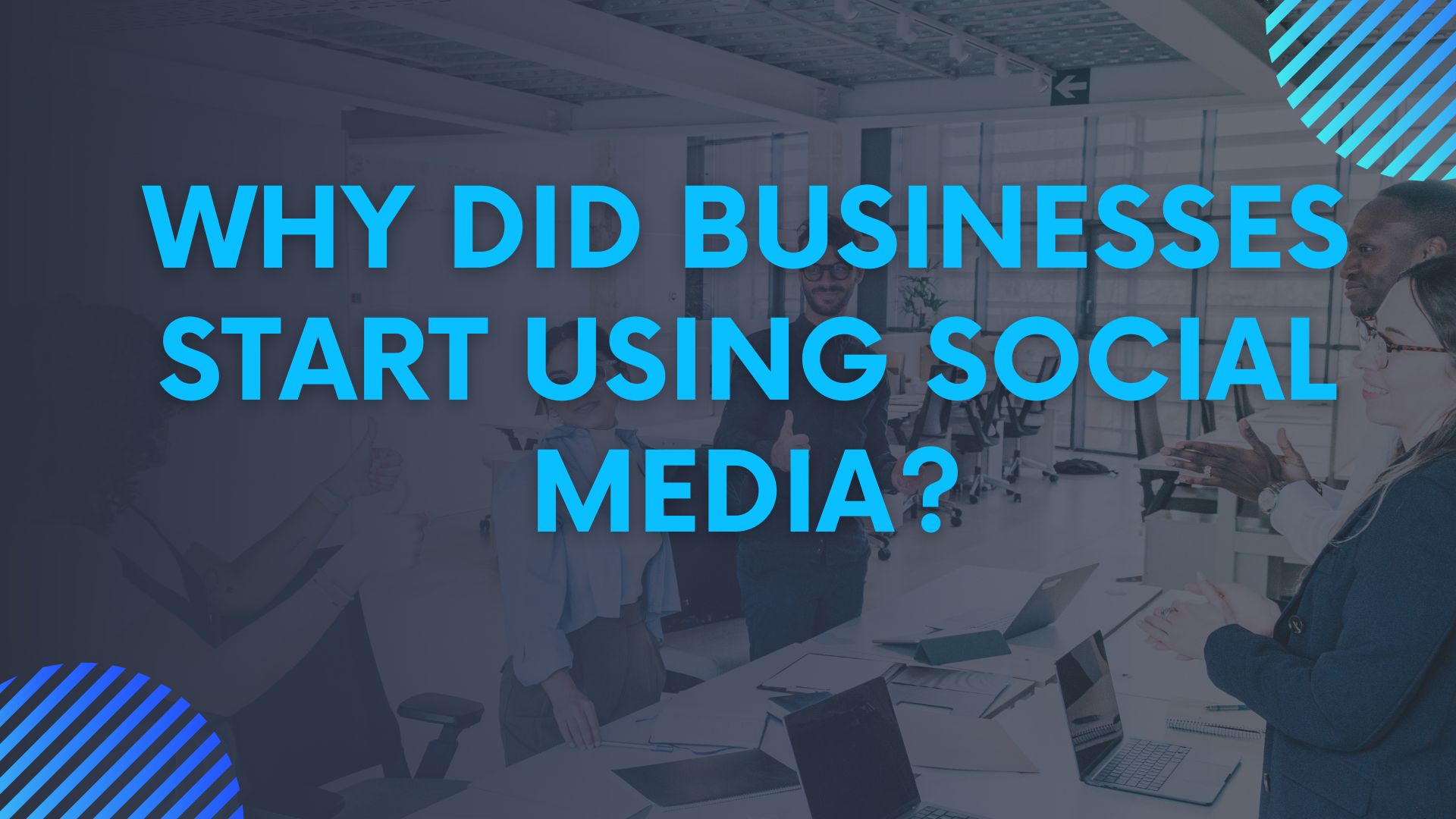In the last decade, social media has revolutionized how businesses operate and connect with their audience. From small startups to large corporations, businesses across the globe have recognized the immense potential of social media platforms. But why did businesses start using social media in the first place?
Let’s explore the key reasons behind this significant shift.
1. Increased Reach and Visibility
One of the primary reasons businesses turned to social media is the unparalleled reach and visibility it offers. Social media platforms like Facebook, Twitter, Instagram, and LinkedIn have billions of users combined. By establishing a presence on these platforms, businesses can reach a wider audience than traditional marketing methods ever allowed.
2. Cost-Effective Marketing
Traditional marketing channels such as TV, radio, and print media can be expensive, especially for small businesses with limited budgets. Social media marketing, on the other hand, is relatively cost-effective. Creating profiles and posting content is free, and even paid advertising on social media is generally more affordable than other forms of advertising.
3. Improved Customer Engagement
Social media allows businesses to interact with their customers in real-time. This direct line of communication helps businesses build relationships with their audience, respond to queries promptly, and gather valuable feedback. Engaging with customers on social media can lead to increased customer loyalty and satisfaction.
4. Enhanced Brand Awareness
By consistently posting valuable content, businesses can enhance their brand awareness. Social media platforms offer various tools to promote brand visibility, such as hashtags, sponsored posts, and influencer collaborations. Over time, this increased visibility can translate into greater brand recognition and recall.
5. Targeted Advertising
One of the most significant advantages of social media is the ability to target specific demographics with advertising. Social media platforms collect vast amounts of data on their users, allowing businesses to create highly targeted ads based on factors like age, location, interests, and behavior. This precision targeting increases the likelihood of reaching potential customers who are genuinely interested in the products or services offered.
6. Access to Insights and Analytics
Social media platforms provide businesses with access to detailed analytics and insights about their audience’s behavior and preferences. This data helps businesses refine their marketing strategies, create more relevant content, and make informed decisions. Understanding what works and what doesn’t can significantly improve the effectiveness of social media campaigns.
7. Competitive Advantage
As more businesses recognize the benefits of social media, having an active presence on these platforms has become a competitive necessity. Businesses that effectively leverage social media can stay ahead of their competitors by engaging with their audience, staying up-to-date with industry trends, and responding swiftly to market changes.
8. Content Virality
The viral nature of social media allows content to spread quickly and widely. A single well-crafted post or campaign can be shared, liked, and commented on by thousands, or even millions, of users. This potential for virality can exponentially increase a business’s reach and impact.
9. Humanizing the Brand
Social media provides businesses with an opportunity to showcase their human side. By sharing behind-the-scenes content, employee stories, and company values, businesses can humanize their brand and create a more relatable and authentic image. This approach helps build trust and emotional connections with the audience.
10. Driving Website Traffic and Sales
Finally, social media is a powerful tool for driving traffic to a business’s website and generating sales. By sharing links to blog posts, product pages, and special offers, businesses can direct their social media followers to their website, increasing the chances of conversions and sales.
Conclusion
Businesses started using social media due to its vast reach, cost-effectiveness, ability to engage customers, enhance brand awareness, target advertising, and access valuable insights. As social media continues to evolve, its importance in the business world is only expected to grow. Embracing social media as part of a comprehensive marketing strategy is no longer optional but essential for businesses aiming to thrive in today’s digital landscape.
Also read this blog: Why do businesses establish a presence on social media platforms?
FAQs:
1. Why is social media important for businesses?
Social media is important for businesses because it provides a platform to reach a larger audience, engage with customers in real-time, enhance brand awareness, and drive website traffic. It also offers cost-effective marketing and targeted advertising, making it an essential tool for modern marketing strategies.
2. How does social media improve customer engagement for businesses?
Social media improves customer engagement by allowing businesses to interact directly with their audience. Businesses can respond to customer queries, gather feedback, and build relationships through comments, messages, and interactive content. This real-time communication helps foster customer loyalty and satisfaction.
3. What are the cost benefits of using social media for marketing?
Social media marketing is relatively cost-effective compared to traditional marketing channels. Creating profiles and posting content is free, and paid advertising options are generally more affordable. This allows businesses, especially small ones, to reach a wider audience without a significant financial investment.
4. How can businesses leverage social media for targeted advertising?
Social media platforms collect detailed data on user behavior and preferences, allowing businesses to create highly targeted ads. Businesses can specify demographics such as age, location, interests, and behaviors to ensure their ads reach the most relevant audience, increasing the likelihood of conversions.
5. What role does social media play in enhancing brand awareness?
Social media enhances brand awareness by providing tools like hashtags, sponsored posts, and influencer collaborations. By consistently posting valuable content and engaging with their audience, businesses can increase their visibility and brand recognition, ultimately leading to greater brand recall and loyalty.
